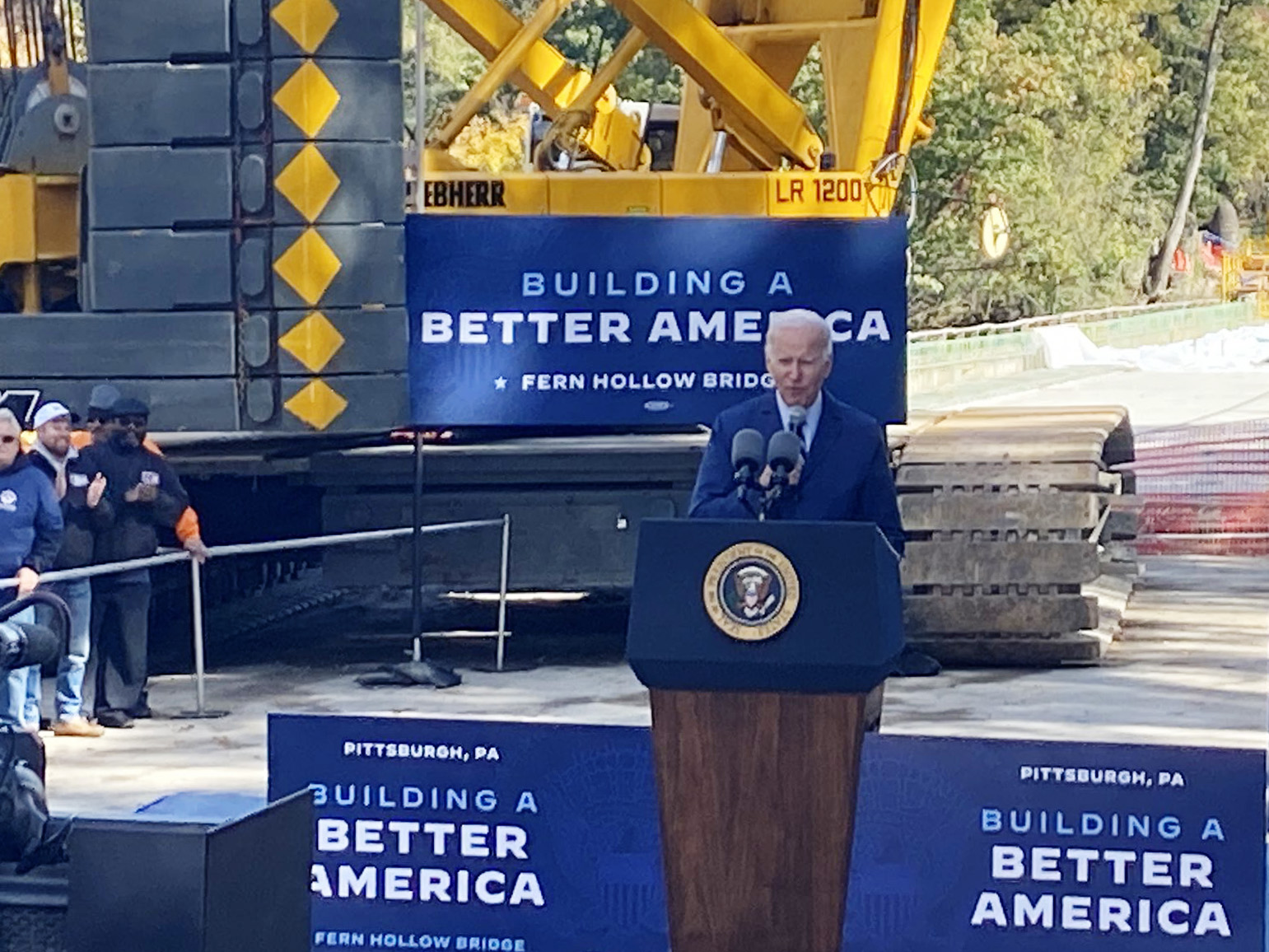President Joe Biden on Thursday visited the site of the fallen Fern Hollow Bridge to speak about his support for infrastructure funding.
Gov. Tom Wolf, Sen. Bob Casey and several other state and local elected leaders were in the crowd overlooking where the bridge, a major thoroughfare along Forbes Avenue, collapsed in January. The collapse happened just hours before Biden was set to speak in the city on infrastructure funding.
Biden pointed to the reconstruction of the bridge, which is ongoing under emergency declarations signed by Wolf and Pittsburgh Mayor Ed Gainey, as an example of how federal dollars from the Bipartisan Infrastructure Law that was signed just two months prior to the collapse were being used. The project is slated to cost about $25 million.
“Pennsylvania’s been able to repair Fern Hollow Bridge in less than a year,” Biden said in his speech at the construction site Thursday. “And by Christmas, God willing, we’ll be walking — I’m coming back to walk over this sucker.”
The president’s trip to Pittsburgh — one of several since he began campaigning for the White House, he noted in his statements — comes less than three weeks before the Nov. 8 midterm elections. It also came just hours before he went across the state to campaign for Democratic Lt. Gov. John Fetterman in Philadelphia as the race for Pennsylvania’s open U.S. Senate seat tightens.
The race between Fetterman and Mehmet Oz, the Republican celebrity physician and television host, has brought a wave of national attention, advertising and cash to the commonwealth as Democrats try to flip the seat, currently held by retiring GOP Sen. Pat Toomey.
But the senate race was barely discussed by Biden during his visit to Pittsburgh on Thursday; the president stuck mainly to speaking about how federal funding was being used to fix crumbling infrastructure, expand internet access to rural areas and create union jobs.
“These projects are going to create good paying, mostly union jobs,” he said. “That’s because I made sure the overwhelming majority of the funds in this infrastructure law are subject to the Davis-Bacon prevailing wages requirement.”
The Davis-Bacon Act, a 1931 law passed under President Herbert Hoover, requires public works projects to pay construction workers with local prevailing wages.
The president also depicted the bridge as an example of how infrastructure can connect communities, noting that it acts as a connector between the neighborhoods of Squirrel Hill and Regent Square.
Biden was introduced by Gregory Stahl, of Somerset, a worker with Swank Construction Co. and a member of the United Brotherhood of Carpenters. The company was contracted by the Federal Highway Administration and PennDOT to remove the collapsed bridge and construct a new one.
“Sometimes I’ve traveled as far as two hours to work and two hours home to provide an honest living for my family,” he said. “I’m grateful for the career and the ability to continue working thanks to the investments made in President Biden’s Bipartisan Infrastructure Bill.”
“On a personal note,” he added, “this investment is just in time for me to retire with benefits in a few short years.”



